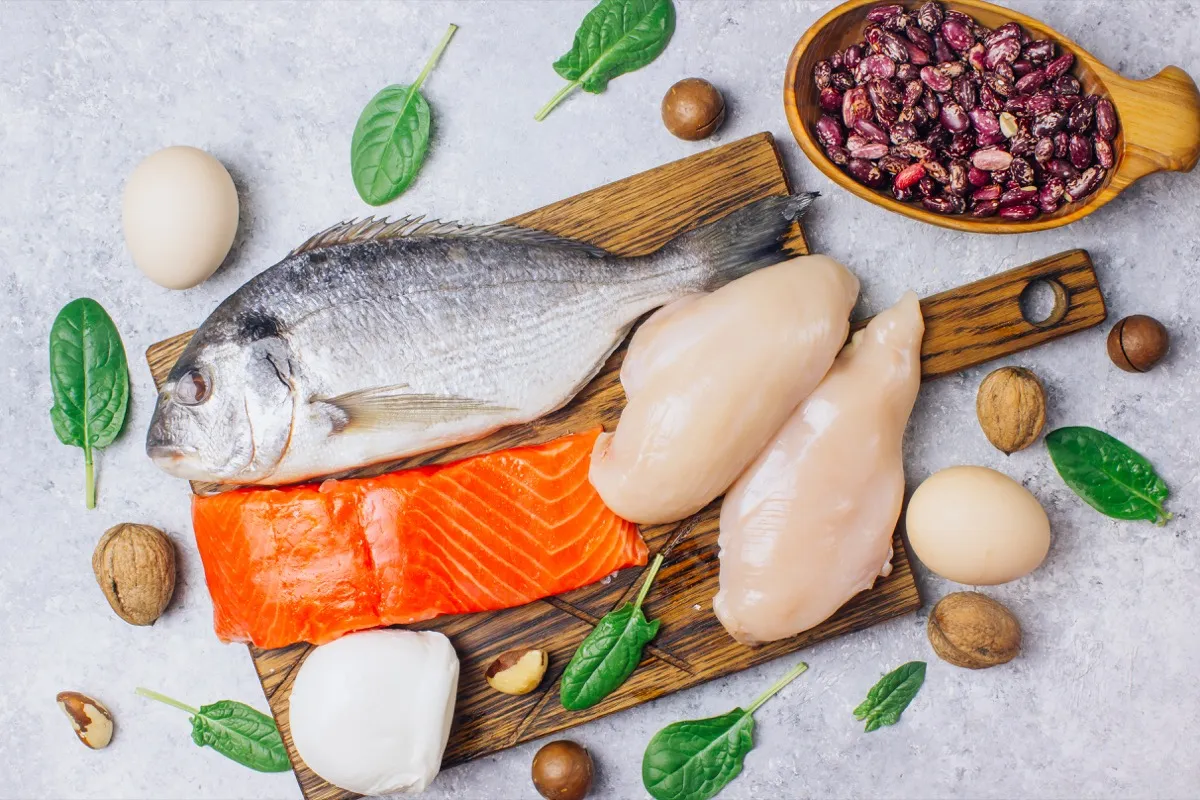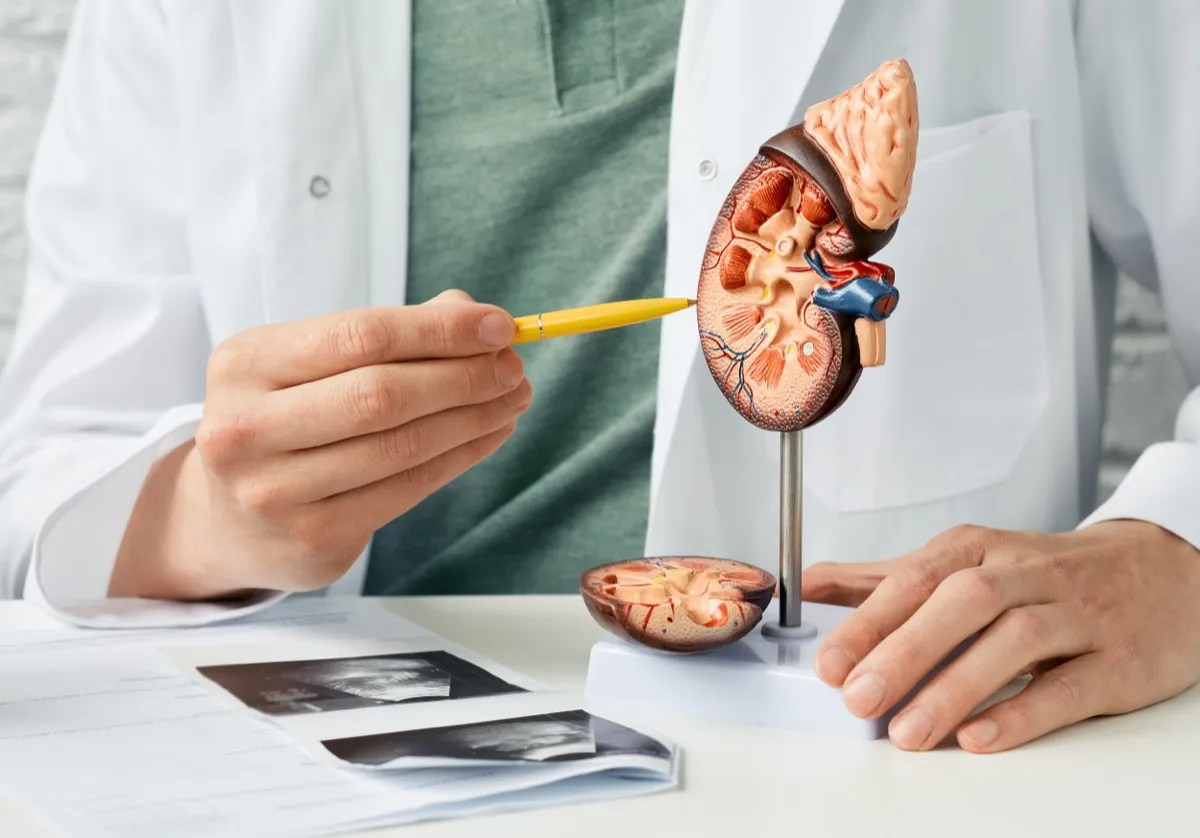6 Signs You’re Eating Too Much Protein, According to Doctors

We’ve all heard that high-protein, low-carbohydrate diets can aid in weight loss—but are they actually good for you? Though your body undoubtedly needs protein to function, it’s possible to have too much protein.
Protein is an essential nutrient made up of chemical building blocks known as amino acids. Your body needs dietary protein in order to perform basic functions, most importantly the creation and maintenance of every cell in the body, including those in the muscles, bones, and tissues.
Eating a wide range of whole foods that combine lean sources of protein with carbohydrates, healthy fats, fiber, vitamins, minerals, and ample water is considered optimal for health. Balance—rather than an over-reliance on any one nutrient like protein—is key, doctors say.
“It’s important to adjust your protein intake to match your lifestyle and other nutrient needs, making sure your body gets what it needs without overdoing it,” says Chris Mohr, PhD, RD, a fitness and nutrition advisor at Fortune Recommends Health.
Wondering exactly how much is too much, and what problems that can cause? Read on to learn the six signs that you’re eating too much protein.
RELATED: 7 Protein Deficiency Symptoms, According to Doctors.
How much protein do you actually need?

The amount of protein you need depends on your age, sex, weight, and activity level, explains Raj Dasgupta, MD, a medical reviewer for NCOA and an ABIM quadruple board-certified physician specializing in internal medicine, pulmonology, critical care, and sleep medicine.
“Generally, adults need about 0.8 grams of protein per kilogram of body weight. Athletes and very active people may need more, around 1.2 to 2.0 grams per kilogram. Older adults and those recovering from illness might also need more protein to stay healthy,” he tells Best Life.
Not sure how to calculate your weight in kilograms? Simply divide your weight in pounds by 2.2.
Getting too little protein can also cause symptoms, Dasgupta notes. “In the short term, you might feel fatigued, have muscle weakness, and/or a weakened immune system,” he says. “Over time, chronic protein deficiency can cause muscle wasting, impaired growth and development in children, and edema (fluid retention).”
Mohr adds that it’s especially important for older adults to eat enough protein to maintain muscle strength, prevent infection, and promote overall health.
That said, when your diet includes more than two grams of protein per kilogram of body weight per day, you may begin to experience symptoms. These can include the following.
RELATED: 6 Signs You’re Getting Too Much Calcium, According to Doctors.
1
Kidney problems

According to Dasgupta, if you already have kidney disease, following a high-protein diet may worsen your kidney function because the body may not be able to get rid of all the waste products associated with proteins.
In fact, some recent research suggests that even those without previously impaired kidney function might experience kidney symptoms. A 2020 study published in the Journal of the American Society of Nephrology (JASN) linked high-protein diets with an increased incidence of de novo (new onset) chronic kidney disease (CKD).
2
Dehydration

One way that an overabundance of protein affects kidney function is that it can cause you to urinate more frequently. When your body enters ketosis, a metabolic state marked by heightened levels of ketone bodies in the blood or urine, this can also lead to dehydration or an electrolyte imbalance. When this happens, you may need to increase your water intake.
3
Heart disease

Your heart health can also suffer when you eat more protein than you need, some research suggests.
“High-protein diets, especially those with a lot of red and processed meat, can increase your risk of heart disease due to higher fat and cholesterol,” says Dasgupta.
In fact, a 2024 study published in Nature Metabolism found that consuming more than 22 percent of your daily calories from protein can increase your risk of atherosclerosis. This is when the arteries become thickened or hardened due to a buildup of plaque in the arteries’ inner lining.
RELATED: 5 Side Effects of Taking Too Much Magnesium.
4
Nutritional deficiency or imbalance

Lean sources of protein are an important part of any balanced diet, but getting too much protein can lead to a nutritional deficiency or imbalance.
“Protein is very filling and with a focus solely on protein, it could displace other nutrient-dense foods like quality carbohydrates and fats,” explains Mohr. “This can ultimately lead to a risk of not getting enough of other nutrients like fiber, vitamins, and minerals, which can affect overall health.”
5
Gastrointestinal upset

Excess protein—especially if you’re eating it in the place of other nutrients—can also cause gastrointestinal upset. This can take the form of nausea, diarrhea, indigestion, constipation, and digestive discomfort, the experts say.
6
Bad breath

Consistently eating excessive amounts of protein in your diet can also lead to bad breath.
According to the JASN study, “high dietary intake of protein may lead to higher levels of urea and other nitrogenous waste products.”As the body breaks protein down during the digestive process, it produces ammonia if there is excess urea present, leading to an unpleasant odor.
Speak with your doctor or dietitian to learn more about striking the right nutritional balance, including how to get the right amount of protein for your body.